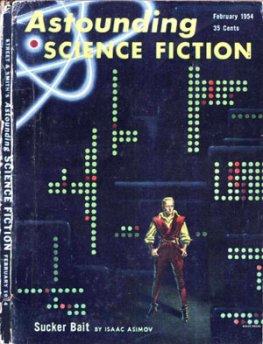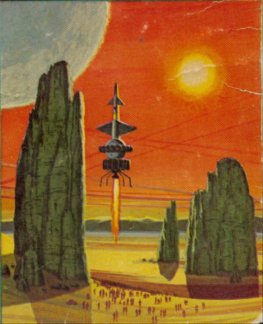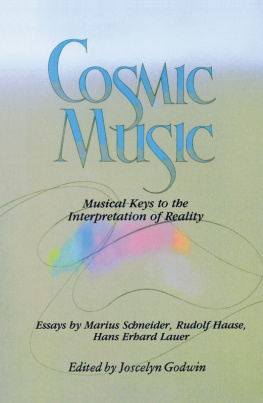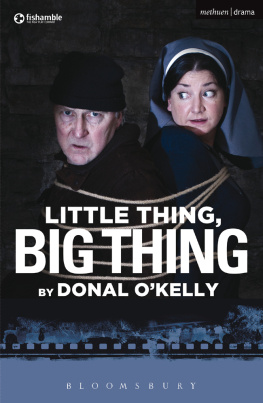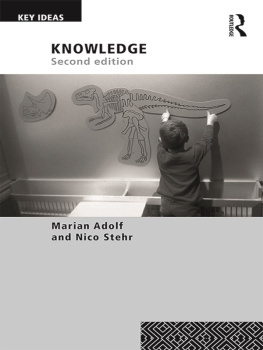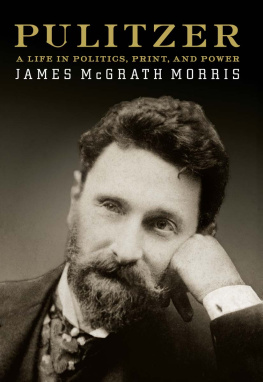Tom Godwin - The Greater Thing
Here you can read online Tom Godwin - The Greater Thing full text of the book (entire story) in english for free. Download pdf and epub, get meaning, cover and reviews about this ebook. year: 1954, publisher: Street & Smith Publications, Inc., genre: Science fiction. Description of the work, (preface) as well as reviews are available. Best literature library LitArk.com created for fans of good reading and offers a wide selection of genres:
Romance novel
Science fiction
Adventure
Detective
Science
History
Home and family
Prose
Art
Politics
Computer
Non-fiction
Religion
Business
Children
Humor
Choose a favorite category and find really read worthwhile books. Enjoy immersion in the world of imagination, feel the emotions of the characters or learn something new for yourself, make an fascinating discovery.
- Book:The Greater Thing
- Author:
- Publisher:Street & Smith Publications, Inc.
- Genre:
- Year:1954
- Rating:3 / 5
- Favourites:Add to favourites
- Your mark:
- 60
- 1
- 2
- 3
- 4
- 5
The Greater Thing: summary, description and annotation
We offer to read an annotation, description, summary or preface (depends on what the author of the book "The Greater Thing" wrote himself). If you haven't found the necessary information about the book — write in the comments, we will try to find it.
The Greater Thing — read online for free the complete book (whole text) full work
Below is the text of the book, divided by pages. System saving the place of the last page read, allows you to conveniently read the book "The Greater Thing" online for free, without having to search again every time where you left off. Put a bookmark, and you can go to the page where you finished reading at any time.
Font size:
Interval:
Bookmark:
The Greater Thing
by Tom Godwin

Illustrated by Kelly Freas
The thing in the dead city was conceived the night the city died. It was created by chance, but unlike that first life on Earth, it was not mothered by the calm earth and water and fathered by the young sun. Its mother was the blasted, riven soil and the screaming winds of concussion, and its father was the fierce radiation of the shattered atomic pile.
It began somewhere under the ruins as a single-celled speck of protoplasm; insensate and without purpose, hardly more than a chemical change. But there was a differenceit grew. It grew, and the radiations hastened its evolution, contracting millennia into days. As it grew it changed form in parts. Parts of it died, unsuited for survival, while the remainder grew stronger and more complex. It acquired the first beginnings of intelligence, and its intelligence became greater as its body became more complex. It developed extensions that crept along the subterranean ruins then explored upward into the sunlight. It expanded, its blobs and webs reaching outward; constantly evolving until it could change form at will, and parts of it could separate from the whole for a while, then merge again with it.
And it thought. At first its thoughts had been merely sensations; the awareness of itself, the will to live, the form of the shattered city. But as its physical body grew more complex, its thoughts became more complex. At last its blobs and webs reached throughout the city and it had attained physical maturity. It stopped growing and had nowhere to go and nothing to dobut think.
It constructed a multitude of eyes and other organs to examine its world. It studied, and learned, the laws of matter and energy. Its mind knew the secrets of the physical universe, but its great body knew only the city and it, alone, moved there.
It studied the skeletal remains of the beings who had built the city and learned their physical structure. It studied their records and learned their way of life, but it could not understand. It knew only absolute logic; the precisely predictable, unvarying reactions of physical things. It could not understand how the builders of the city had thought, nor why they had destroyed themselves, and it wondered. It did not care, for it was as devoid of emotion as the physical things it knew so well. It merely wondered, and waited for the day these beings might come to it and enable it to learn the reasons for their actions.
It waited patiently, for the problem was of only minor importance to it. It was fully aware of the power of the weapons that had destroyed the city, but it felt no fear of the coming of the beings who possessed these weapons. It knew that in its knowledge of physical forces it was invincible. It was neither vain nor proud, for such emotions do not spring from cold logic. It knew that it was invincible and, to it, the knowledge was no more than a commonplace fact.
It realized its tremendous powers for destruction or construction, but it had no motive for either. It had but two instincts: the will to live, and the curiosity without which its great intelligence would have remained an unused, and useless, potential.
It was fifteen years old when the first humans entered the city. It was telepathic and could read their thoughts but it could not comprehend the emotions that drove them. It learned that the first two were to die at the hands of the others who followed and its interest increased. But it was content to remain unseen and merely observe; it had no reason to interfere.
The long ridge in the distance was sharp against the sunsets afterglow and Thorne waited, watching the saddle where their pursuers would crossif they were as near as he feared.
A black dot appeared in the saddle, tiny but distinct against the sky. He focused his eyes on the spot until all else blurred, counting the dots as they appeared for a moment, then disappeared down the near side of the ridge. He counted nine, then the saddle was empty again.
He turned away, his face bleak and grim. Nine little black dots against the sky; nine sweating, eager State police closing in for the kill. But they had been too eager, they had betrayed their nearness by not waiting for darkness to conceal them as they crossed the ridge. They should have restrained their impatience for a few minutes, then taken up the trail. They were fools. In their eagerness they had delayed the moment when they could crowd in with the lean bloodhound straining at its leash and anticipation glistening in their eyes.
He hurried into the trees where the girl lay sleeping. She was lying as he had left her, the yellow hair tumbled about her shoulders and her breathing tired and slow.
He shook her shoulder. Time to go, Lorrinetheyre coming.
She came to her feet at once, her eyes wide-awake and alert. How far? she asked.
Not over a mile. They must have followed all day without a break.
She brushed the leaves from her hair, trying to comb it with her fingers. The links of broken chain dangling from the manacles on her wrists tinkled metallicly. Still only four of them? she asked, then ceased trying to comb her hair as she read the answer in his face. Nine?
He nodded.
Then theyve killed all the others, already. They didnt take any of them back alive.
They never donot escaped Underground prisoners, he answered shortly. We cant help the others, nowand our turn is next. Lets go!
She followed silently as he struck out through the shadowy woods. They came to an open field as darkness fell and a glow in the eastern sky heralded the rising of the full moon. He set as fast a pace as he dared, aware that the long days march had told on the girl more than she would admit but with the certainty in his mind that her only chance for survival this one more night lay in forcing her tired legs to carry her on, lengthening the distance between themselves and the snuffling bloodhound for so long as they could.
They came to a creek as the moon lifted above the horizon, a creek running nearly at right angles to their own course. Its swift, shallow waters would erase their tracks and leave no scent for the hound and they splashed down it until it turned too far away from their own course.
The countryside began to change after they left the creek, the shells of houses appearing in the distance. They came to a road and followed it. It came to a junction with a highway and they followed the highway, their footsteps sharp and quick on the broken pavement. The houses became more closely grouped together as they walked on, and when the moon had climbed halfway to its zenith they came to the outskirts of the city; the first broken and fallen walls.
The girls breath was coming hard, and she stumbled with increasing fre-quncy as they hurried. He watched her without comment or softening of the bleak hardness of his face, but he called a halt when the first turn of the highway into the city hid them from the country behind. She dropped to the ground, her back against the concrete wall of the roofless shell beside the highway, the hard laboring of her lungs fast and desperate in the stillness.
Well rest a while, he said. Youve about reached your limit, and I think we may have lost them for a few hours by taking to that creek.
He moved out a little way from her, where he could watch back down the long ribbon of moonlit highway. It was clear, and he turned his attention to the short distance he could see into the city. Some of the buildings were almost untouched by the bombing, but there was no sign of any inhabitation; a thing to be expected with the population reduced to one third by the bacteriological warfare that had followed the bombing. The State found it best to concentrate the remaining population in the more industrially and agriculturally productive areas, both for greater production and for its more rigid control over them.
Font size:
Interval:
Bookmark:
Similar books «The Greater Thing»
Look at similar books to The Greater Thing. We have selected literature similar in name and meaning in the hope of providing readers with more options to find new, interesting, not yet read works.
Discussion, reviews of the book The Greater Thing and just readers' own opinions. Leave your comments, write what you think about the work, its meaning or the main characters. Specify what exactly you liked and what you didn't like, and why you think so.

